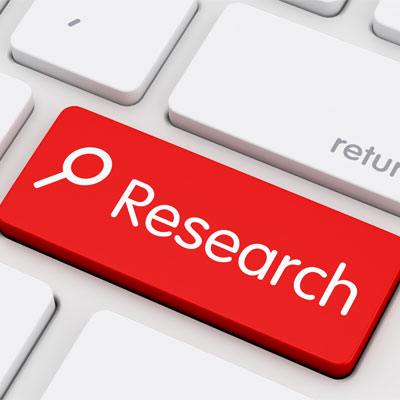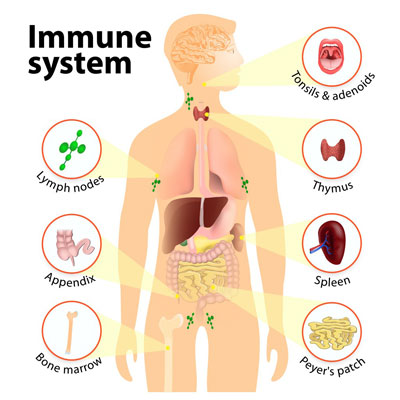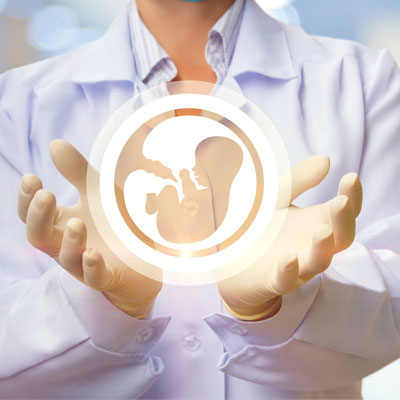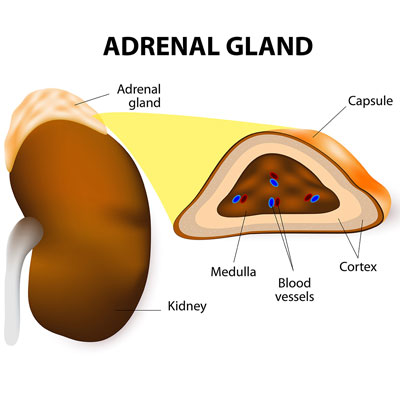Contents
Many people have a general understanding of Trusted sourceWhat are HIV and AidsAvertGo to sourceHIV and AIDS but often view them as one and the same. While they are connected, you cannot get AIDS if you do not have HIV, you can be HIV-positive and not have AIDS.
HIV is a virus that will attack a person’s immune system, weakening it and making them susceptible to infections and other diseases. HIV attacks CD4 (T-cells) cells.
T-cells are the crucial fighter cells that keep invading germs and viruses from making us sick. As HIV destroys the CD4 cells, it leaves a person with a reduced number to protect the body.
If the body starts to become weak or sick, those are signs that HIV is progressing into AIDS. We will take a closer look at each of the two conditions below.
What Is HIV?
Human immunodeficiency virus is the complete name for HIV. Once the body acquires the HIV, it has it for life. Treatment can help prevent it from progressing into AIDS; however, it will never completely disappear. Because HIV attacks the CD4 cells, it opens the door for serious infections and cancers to form. The body does not have enough of these vital T-cells to fight off the invaders. The weaker the body becomes, the more likely it will be to develop AIDS.
Basic facts about HIV
- You can HIV for many years and not know it
- HIV does not discriminate – it can affect men and women
- Both males and females can spread HIV
- You can have no symptoms of HIV yet still spread it to others
- Approximately 37,600 people are diagnosed with HIV each year
- Per the CDC – roughly 1.1 million people have the HIV injection in the US
- You can have HIV and not have AIDS
- There is no cure for HIV
- Medications can help reduce the risk of HIV developing into AIDS
- You may develop shingles or thrush (yeast infection on the tongue) after getting infected
Body fluids can transmit HIV
- Breastmilk from a woman with HIV can infect the infant
- A fetus can contract HIV from the mother before or during birth
- Semen that passes through the mouth, anus, or vagina can spread HIV
- Vaginal fluids can infect a man through a small area of broken skin on the penis or in the mouth
- Sharing needles for drugs can transmit HIV
- Getting a tattoo or body piercing with a dirty needle can spread HIV
- Blood transfusions were a previous cause, although blood in the US is now tested for HIV before use
Latex condoms can reduce the risk of passing HIV during sex. Workers in the medical profession must take great care not to come into contact with HIV-infected blood.
HIV testing looks for antibodies that attack the virus in the blood. Urine testing is also possible, but most clinics check the blood. Getting a positive test result means that HIV traces are present in the blood. A negative report means that there are no signs of HIV. It is essential to note that getting infected with HIV often takes 2 to 8 weeks for the body to produce the antibodies that fight it, or for enough of the virus to be present for either of these factors to be present in the blood. Some people may not see a positive HIV blood test for up to six months. That could give a false level of safety that could result in the infection of others.
During the initial 2 to 4 weeks after getting infected with HIV, a person may develop flu-like symptoms. The name for this is “acute retroviral syndrome” (ARS). The body provides this natural infection response to try and fight HIV. However, the virus is using the crucial CD4 cells to help it replicate and grow, causing the death of the T-cells in the process. If HIV infection is a possibility, it is recommended to seek medical help at once to begin antiretroviral therapy (ART) to prevent the progression of HIV into AIDS.
Clinical latency is the next stage of the infection and a time when little to no symptoms are present. Although seemingly dormant, the virus continues to replicate itself inside the body. It may not progress for many years, or even decades when proper care of the body and treatment (ART) are employed to maintain overall health.
What Is AIDS?
Acquired immunodeficiency syndrome is the complete name for AIDS, the most severe phase of being infected with HIV. By the time a person develops AIDS, the immune system is extremely weak and damaged. At this time, “opportunistic infections” could occur because your body cannot fight them off any longer.
Basic facts about AIDS
- HIV progresses to AIDS when CD4 cell count is lower than 200 per cubic millimeter of blood
Opportunistic infections are a sign of AIDS, such as:
- Dementia
- Chronic diarrhea
- Kaposi’s sarcoma – skin tumor
- Headaches or mental changes due to tumors (brain or spinal cord) or fungal infections
- Breathing difficulty (infection spread to lungs)
- Severe malnutrition
Signs of HIV progression into AIDS include:
- Night sweats
- Weight loss
- Feeling sick
- Fatigue
- Swollen glands underarms, in groin, or neck
- Persistent fever
Once you have AIDS, you must begin treatment. Without treatment, the prognosis may be only three years. Opportunistic infections could shorten that to about one year.
HGH for AIDS Patients
Ongoing research continues to show great promise for the use of HGH for AIDS patients. Areas that tend to suffer the most are body composition, quality of life, and emotional well-being. As the HIV/AIDS virus attacks the body, it destroys the immune system, tissues, and muscles, and impacts emotional health and outlook.
Great strides have been taken with medications to improve the symptoms of HIV/AIDS. However, there is still much to do, and the side effects of some treatment options can cause further issues.
Patients with the AIDS virus often develop elevated levels of the following:
- Blood sugar
- LDL and total cholesterol
- Triglycerides (fats)
Whether resulting from or contributing to these issues, increased visceral fat deposits in the abdomen and trunk further increase the risk of obesity, cardiovascular disease, type 2 diabetes, and heart attacks. The muscle wasting often seen with AIDS increases the risk of early mortality.
Weakened immune systems, whether from the virus itself or the anti-HIV medications, can further complicate the situation. Frequent illness continues to weaken an already weak body, impacting overall health and quality of life.
The use of growth hormone for AIDS patients can potentially reverse all the above. HGH plays a significant role in balancing blood sugar, cholesterol, and triglyceride levels. Human growth hormone helps improve body composition, energy, sleep, and mood.
One of the most important benefits of HGH therapy is the impact it has on decreasing the viral load when used with anti-HIV medications. In previous studies, HGH was found to increase the size and function of the thymus gland. This organ located beneath the breastbone produces naïve T-cells that can then increase CD4 cell counts. HGH improves thymus gland size and functions through its role in stimulating cellular regeneration. By promoting the liver to secrete insulin growth factor 1, HGH brings about the production of its own mediating hormone IGF-1.
HGH and Weight Loss in AIDS Patients
Accumulated pockets of fat in the abdomen increase crowding of the internal organs, and therefore the heart. Excess weight also puts a further strain on the heart, causing it to pump harder to get blood flowing. Increased abdominal fat puts a person at risk for further complications that can include cardiovascular disease (CD) and coronary heart failure (CHF). With both low HGH levels and HIV/AIDS, a person may find decreased energy reserves. The body must use more energy to power its increased bulk. With the administration of HGH for AIDS patients, the metabolism gets the signals it needs to convert food into fuel rather than fat. The results of this action include:
- Increased energy to better food metabolism
- Mobilizing and utilization of stored fat for additional energy
- Loss of accumulated abdominal fat
- Improved lean to fat mass ratio
- Decreased breast size
- Reduction of buffalo hump
- Increased exercise capacity thanks to enhanced energy
The combination HGH AIDS treatment can help improve cardiovascular benefits through loss of visceral fat, lower cholesterol and triglyceride levels, and increased energy.
HGH and Muscle Loss in AIDS Patients
Loss of lean muscle is as significant an issue as fat retention for patients dealing with low levels of HGH and AIDS. As the body loses muscle tone and tissue it becomes weaker. Since growth hormone promotes cellular production, the body loses not only muscle tissue, but also bone density. Joint pains, weakness, and an increased risk of fractures and osteoporosis interfere with overall quality of life.
Not only does HGH directly impact IGF-1 production which is critical for cell reproduction, but it also stimulates testosterone secretion. Testosterone also helps to support muscle growth and bone mineral density. AIDS-related wasting contributes to early mortality, so using HGH for AIDS patients can help reverse the muscle loss. By strengthening bones and increasing energy as we previously discussed, HGH also helps improve exercise capacity. Being able to engage in exercise further strengthens the heart and the body.
Other benefits of HGH for HIV/AIDS patients include:
- Improving appearance by reducing the signs of wrinkles and skin sagging through better elastin and collagen production
- Decreasing depression, stress, anxiety, and irritability
- Enhancing mood, sense of humor, positive outlook, and feelings of well-being
- Strengthening brain functions including cognitive processing, concentration, memory, and learning
- Improving hair growth and thickness
Contact our hormone clinic for more information about HGH and AIDS. Our medical advisors provide cost-free, confidential consultations to adults throughout the US.
- Author: Fazia Mir, MD; Chief Editor: Michael Stuart Bronze, MD
- Joan C. Lo, Kathleen Mulligan, Mustafa A. Noor, Grace A. Lee, Jean-Marc Schwarz, Carl Grunfeld, Morris Schambelan
- P. A. Windisch, F. J. Papatheofanis, K. A. Matuszewski
- Anna A Herasimtschuk, Samantha J Westrop, Graeme J Moyle, Jocelyn S Downey, and Nesrina Imam
What is the role of growth hormones in the treatment of HIV infection?
The Effects of Low-Dose Growth Hormone in HIV-Infected Men with Fat Accumulation: A Pilot Study
Recombinant human growth hormone for AIDS-associated wasting
Effects of recombinant human growth hormone on HIV-1-specific T-cell responses, thymic output and proviral DNA in patients on HAART: 48-week follow-up










